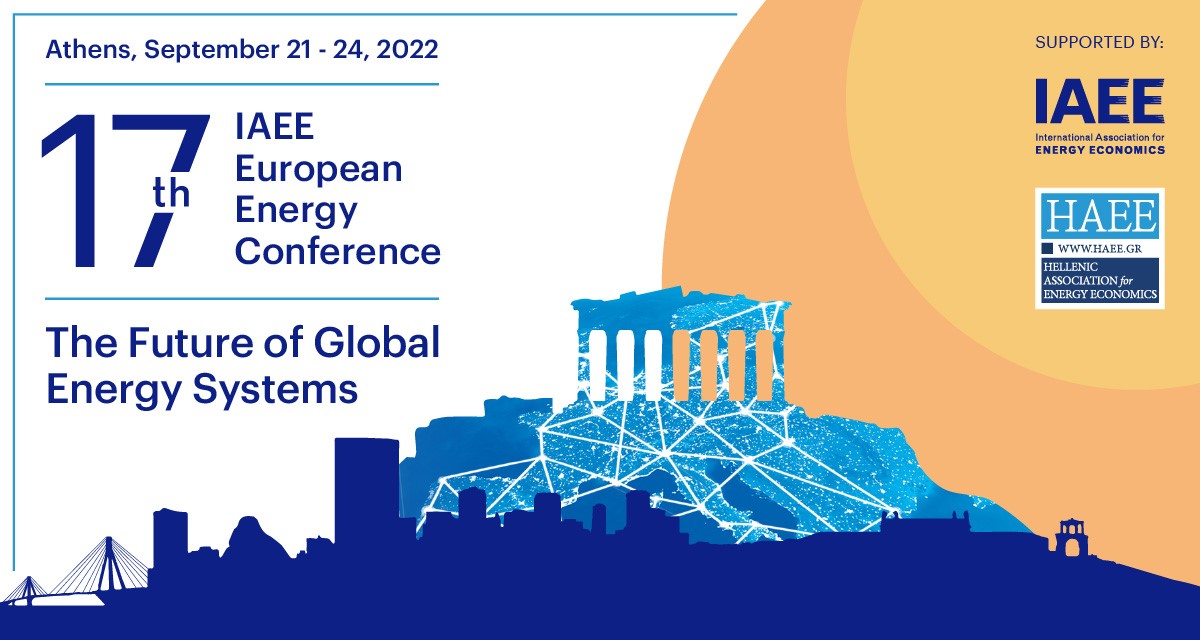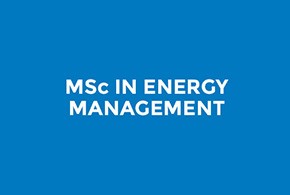| |
| |
|
Editorial
Our upcoming events and latest activities can be found below:
Events:
1. The ESCP UK Alumni Summer Soirée will take place in London on 28th June. More info can be found here.
2. The 17th IAEE European Energy Conference organised by the Hellenic Association for Energy Economics (HAEE) will take place from 21st - 24th September in Athens. More info is available here.
Views on energy news:
Latest article on potential benefits of natural gas discoveries in Sub Saharan Africa through the lens of the energy trilemma by Yves Muyange, Senior Advisor, Strategy and Regulation at Tetra Tech and Graduate of ESCP Business School’s Executive Master in Energy Management. Read more here.
Research:
In case you missed it, you can check the latest working papers by our MSc in Energy Management students on ESG, sustainability, and other relevant topics.
Energy Programmes at ESCP:
Admission process for the 2022 intake of our MSc in Energy Management (MEM) is open. We remind you that the final deadline for the specialisation is fast approaching; make sure you submit your application by 13 June.
For more experienced professionals, we offer the Executive Master in Future Energy. For more information on the programme, please click here.
Finally, to keep up-to-date on all activities at the Centre, we invite you to join our LinkedIn group, Energy Management @ ESCP and follow us on Facebook.
|
| |
|
| |
|
Event
|

|
Affiliates Events
21st - 24th September
|
The American College of Greece
17th IAEE European Energy Conference
ESCP Business School and its Energy Management Centre are delighted to announce that the Hellenic Association for Energy Economics (HAEE) will host the 17th IAEE European Energy Conference “The Future of Global Energy Systems”, in Athens, from 21 to 24 September 2022, the first physical IAEE European Conference in the post Covid-19 era.
We live in a time of unprecedented challenges for the energy sector. As the world begins to recover from the COVID-19 crisis, it becomes evident that the pandemic has brought to the surface economic and societal vulnerabilities, while its repercussions on energy systems have already started to become apparent.
On top of that, addressing the challenges of the energy trilemma seems more imperative than ever. National energy systems’ resilience is dependent on their energy mix and the changes brought by decarbonization, digitalization and demand disruption. Additionally, although efforts are being made, millions of people still lack undisturbed access to affordable, reliable and sustainable energy, and hence energy equity is still lagging behind. As for the environmental sustainability of energy systems, many nations’ struggle for decarbonization is counterbalanced by the rapid increase in energy consumption. Taking also into account that different national contexts lead to divergent energy policies and associated costs, there can be no single way for an effective energy transition.
|
|
Energy Programmes
|

London - Paris - Internship
|
|

|
|
|
|
|
Our Mission
|

|
|
The EMC Advisory Board
|

The EMC Advisory Board is comprised of top energy experts from the world's industry leaders in both the public and private sectors.
- They advise the EMC in several different areas: The curricula of the MSc in Energy Management, ensuring both programmes meet the needs of participants on academic and professional levels.
- Research that makes a significant impact on best business practices.
- Current and future activities which benefit the EMC's partners, affiliates, students and alumni.
|
|
|
Research
|
EMC Working Papers
A closer look at ESG investing
Halfway between traditional philanthropy and return-driven financial investment, ESG investing – i.e. directing capital to companies which yield environmental, social and governance benefits in addition to profits – enables investors to “do well by doing good”. Lying within the broad range of responsible investments, ESG can be virtually any asset class or investment vehicle.
EMC Working Papers
Within the debate around climate change, renewable energy sources (RES) hold an important place, some of which are perhaps more widely known than others. Next to solar and wind, biomethane is less well known and often even classified in “other renewable power”. However, it has a bright future as solar and wind showed their limitations in Autumn 2021, being partially responsible for the increase of gas prices in Europe.
More than ever, our growing dependence on intermittent energy sources makes it crucial to diversify the energy mix. It should be noted that, even though Europe is moving towards a system that heavily relies on electricity as an energy carrier, many industries such as iron or cement making are not yet ready to be powered by electricity, and hence rely heavily on fossil fuels.
Unlike other RES, biomethane shares almost all its characteristics with natural gas, making it interchangeable and suitable for industry applications, whilst using the existing gas transmission network.
As part of the quest to diversify its energy mix and increase its energy independence, the European Union is encouraging the development of methanation. Germany was the first country to get on board, and France is now joining its neighbour on this path. However, the urgent need for decarbonisation framed by the Paris Agreement seems to push all stakeholders into acting too quickly, leaving space for abusive practices and for things to get out of hand, to the detriment of sustainable agriculture practices.
|
|
EMC Working Papers
In order to reach net zero emissions, do we alter the electricity infrastructure to increase electric vehicle market penetration or promote the adoption of electric vehicles?
The Paris Agreement at COP21 highlighted that, despite the reductions in carbon emissions recorded in other sectors, in the transport sector they have steadily increased, trending toward a 50% increase by 2030. Globally, the transport sector is still heavily dependent on fossil fuels, accounting for around 17% of the world’s emissions. Thus, the topic of electric vehicles (EVs) has been the focal point of discussions in decarbonising the sector. However, there have been many critiques of the plausibility of transitioning to EVs and whether we should, (1) change the electricity generation grid, or (2) facilitate the transition to EVs by dismissing the emissions of the unchanged electricity generation mix. Will the transition be of environmental benefit? And what comes first: introducing large-scale EV adoption to facilitate decarbonisation through fiscal policies, or changing the infrastructure to stimulate the adoption of electric vehicles?
EMC Working Papers
The potential for blockchain technology to profoundly disrupt the world as we know it is enormous. The financial system is often seen as the most vulnerable industry primed for disruption. This technology has the potential to disrupt a variety of industries, including aerospace and defence, supply chain and logistics, and energy management, most notably decentralised micro-grid systems.
Background
- Examine the common misconceptions about the environmental impact of Blockchain mining
- Analyse the options for transitioning blockchain mining away from fossil fuels and towards variable renewable energy sources (vRES)
|
|
|
| |
|



















